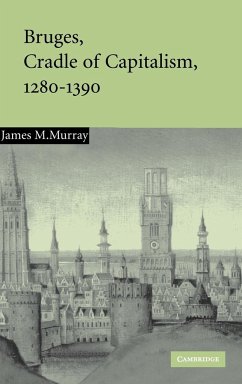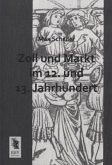Teeming with merchants from all over Europe, medieval Bruges provides an early model of a great capitalist city. Bruges established a sophisticated money market and an elaborate network of agents and brokers. Moreover, it promoted co-operation between merchants of various nations. In this book James Murray explores how Bruges became the commercial capital of northern Europe in the late fourteenth century. He argues that a combination of fortuitous changes such as the shift to sea-borne commerce and the extraordinary efforts of the city's population served to shape a great commercial centre. Areas explored include the political history of Bruges, its position as a node and network, the wool, cloth and gold trade and the role of women in the market. This book serves not only as a case-study in medieval economic history, but also as a social and cultural history of medieval Bruges.
Hinweis: Dieser Artikel kann nur an eine deutsche Lieferadresse ausgeliefert werden.
Hinweis: Dieser Artikel kann nur an eine deutsche Lieferadresse ausgeliefert werden.








